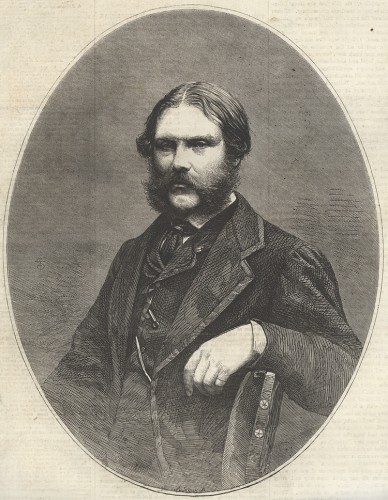Francis Fowke
| Francis Fowke | |
|---|---|
 |
|
| Born |
7 July 1823 Ballysillan |
| Died | 4 December 1865 (aged 42) London |
| Nationality | British |
| Occupation | Architect |
| Buildings |
Victoria & Albert Museum Chiswick House Royal Albert Hall Royal Museum Edinburgh |
Francis Fowke RE (7 July 1823 – 4 December 1865) was a British engineer and architect, and a Captain in the Corps of Royal Engineers. Most of his architectural work was executed in the Renaissance style, although he made use of relatively new technologies to create iron framed buildings, with large open galleries and spaces.
Fowke was born in Ballysillan, Belfast. He studied at The Royal School Dungannon, County Tyrone, and the Royal Military Academy, Woolwich. He obtained a commission in the Royal Engineers, and served with distinction in Bermuda and Paris. On his return to England, he was appointed architect and engineer in charge of the construction of several government buildings.
Among his projects were the Prince Consort's Library in Aldershot, the Royal Albert Hall and parts of the Victoria and Albert Museum in London, the Royal Museum in Edinburgh, and the National Gallery of Ireland in Dublin. He was also responsible for planning the 1862 International Exhibition in London. The International Exhibition building was described as 'a wretched shed' by The Art Journal; The Crystal Palace at the Great Exhibition of 1851 being a hard act to follow. Parliament declined the Government's proposal to purchase the building; the materials were sold and used for the construction of Alexandra Palace.
...
Wikipedia
